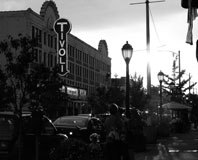
Pompeii
Bird Watching
Forgiveness
Where the wind blows and nothing moves,
not the rust-speck pebbles at your feet,
or the scant rain misting the dark foundations
of ancient temples, columns sawed off at the knees
by time, or greed, or angry hands – no one knows
for sure – not even the flags in the distance
that serve as markers for the swarming tour groups,
none of it moves. And when you turn the corner
to see the bodies frozen in their death poses
you go to gasp and even your breath hangs in the air
like a bird struck by an arrow. Even your hands
can’t quite make it to your face before the ash
pours in like water over the top of the sink,
swallows you all at once, depositing your perfect
shadow behind it, preserved in your reckless awe.
You think about the ways you’d want to be remembered,
and none of them are like this. One man kneels in contemplation,
and a slave lies on his side as if to pretend at napping.
The most certain proof though, that some preservation is cruel,
comes in the shape of a dog, tethered to an invisible rope,
twisting and writhing as the storm descends. He is hopeless,
terribly trapped in motion, bound to never escape
like a dark and forgotten Greek myth. A young boy asks the guide
if, in fact, he saw a baby in one of the cases. And, yes, the guide
explains, nature, when at its most violent,
does not care if you are young or old, good or bad,
nature takes us all. That’s enough for anyone
to try to understand. And here, where thousands
of years stand immovable, we try. Impossible,
in a place where nothing has died,
where you expect ashen corpses to suddenly rise
to their feet and take up their day’s work again.
And, the boy, confronted with immortality, and the truth
that nothing really survives, all at once, in one moment,
shrugs as if to drop some invisible cloak from his shoulders.
There’s a stream next to the orchard,
long tangled breaths in its long tailless
current, and the haunting stuttering
weaves to the corner of my den
where I watch birds pluck blood-drop
berries from the trees, and it is all
so refined, so simple to see the wrest
of food from a lending branch. I keep
strumming this string of desire:
to devour something beautiful, bare
my seed-stained teeth in the dull ache
of moonlight hinged over the door frame.
I want to pick the bony branch clean,
pour my wings into shadow, lift into sky.
And so the clouds, steepled and stubborn,
lay their striped bodies across aging bluffs
wrinkled green, moss-threaded, sun-barren.
Is this how the worst of us find solace
in the devastation of a storm, the sudden
lift and torque of a tunneling cyclone?
The cracked carcass of that distressed earth
reminds us of some kindly, forgotten art.
However we see it, the stone remembers
how it was split. The soil remembers
what it drank, cool rain or bitter ash.
Whatever we call it, our brittle sky
is a tongue. Listen: the lap of wind
in tall grasses is prayer, is forgiveness.
Andrew McSorley is the author of What Spirits Return (Kelsay Books, 2019). A graduate of the MFA program in creative writing at Southern Illinois University, his poetry has previously appeared or is forthcoming in journals such as The Minnesota Review, HAD, Sledgehammer, Birmingham Arts Journal, and many others. He lives in Appleton, Wisconsin, where he works as a librarian at Lawrence University.

